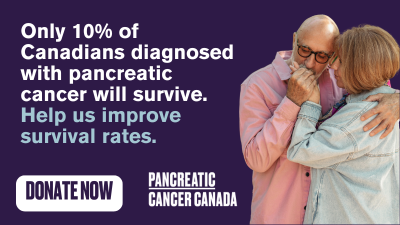How does this medication work? What will it do for me?
Polymyxin B sulfate - neomycin sulfate - bacitracin zinc contains a combination of antibiotics used to treat certain types of infections caused by bacteria. The topical ointment can be used to treat certain skin infections and to prevent infections in burns, minor cuts, and wounds. This preparation works by killing the bacteria that cause these infections.
Your doctor may have suggested this medication for conditions other than those listed in these drug information articles. As well, some forms of this medication may not be used for all of the conditions discussed here. If you have not discussed this with your doctor or are not sure why you are taking this medication, speak to your doctor. Do not stop taking this medication without consulting your doctor.
Do not give this medication to anyone else, even if they have the same symptoms as you do. It can be harmful for people to take this medication if their doctor has not prescribed it.
What form(s) does this medication come in?
Neosporin Ointment is no longer being manufactured for sale in Canada and is no longer available under any brand names. This article is being kept available for reference purposes only. If you are using this medication, speak with your doctor or pharmacist for information about your treatment options.
How should I use this medication?
After removing any debris, such as pus or crusts, from the affected area, apply a thin layer of the ointment 2 to 5 times daily over the affected area. You may cover the area with dressing or leave it exposed. Do not use the ointment in the eyes.
This medication should not be used for more than 7 days without medical supervision. If there is no improvement after 7 days of using this medication, call your doctor.
Many things can affect the dose of medication that a person needs, such as body weight, other medical conditions, and other medications. If your doctor has recommended a dose different from the ones listed here, do not change the way that you are using the medication without consulting your doctor.
It is important to use this medication exactly as prescribed by your doctor. If you miss a dose, apply it as soon as possible and continue with your regular schedule. If it is almost time for your next dose, skip the missed dose and continue with your regular dosing schedule. Do not apply a double dose to make up for a missed one. If you are not sure what to do after missing a dose, contact your doctor or pharmacist for advice.
Store this medication at room temperature and keep it out of the reach of children.
Do not dispose of medications in wastewater (e.g. down the sink or in the toilet) or in household garbage. Ask your pharmacist how to dispose of medications that are no longer needed or have expired.
Who should NOT take this medication?
Do not use this medication if you:
- are allergic to polymyxin B sulfate, neomycin sulfate, bacitracin zinc, or any ingredients of this medication
- are allergic to medications belonging to the class of medications known as aminoglycosides (e.g., gentamicin)
- have an external ear infection when there is a perforated eardrum
- have eye infections (this medication is not for the eye)
- have nerve deafness
- may need this treatment for a long period of time or have a very large affected area, where a significant amount of medication may be absorbed into the body
Do not give this medication to children younger than 2 years of age.
What side effects are possible with this medication?
Many medications can cause side effects. A side effect is an unwanted response to a medication when it is taken in normal doses. Side effects can be mild or severe, temporary or permanent.
The side effects listed below are not experienced by everyone who takes this medication. If you are concerned about side effects, discuss the risks and benefits of this medication with your doctor.
The following side effects have been reported by at least 1% of people taking this medication. Many of these side effects can be managed, and some may go away on their own over time.
Contact your doctor if you experience these side effects and they are severe or bothersome. Your pharmacist may be able to advise you on managing side effects.
- itching, pain, skin rash, scaling, swelling, redness, or other signs of skin irritation not present before use of this medication
Although most of the side effects listed below don't happen very often, they could lead to serious problems if you do not seek medical attention.
Check with your doctor as soon as possible if any of the following side effects occur:
- blood in urine
- difficulty with urination
- loss of hearing
- weakness, tingling, or numbness in hands or feet
Stop taking the medication and seek immediate medical attention if any of the following occur:
- signs of a severe allergic reaction such as severe rash or hives; difficulty breathing; or swelling of the mouth, lips, tongue, or throat
Some people may experience side effects other than those listed. Check with your doctor if you notice any symptom that worries you while you are taking this medication.
Are there any other precautions or warnings for this medication?
Before you begin using a medication, be sure to inform your doctor of any medical conditions or allergies you may have, any medications you are taking, whether you are pregnant or breast-feeding, and any other significant facts about your health. These factors may affect how you should use this medication.
Absorption: Absorbing a large amount of this medication into the body can increase the risk of damage to the ears or kidneys due to neomycin. Your doctor will monitor your closely if you are using this medication for burns, large ulcers, and other extensive conditions where significant absorption of neomycin is possible.
Allergies: Some people with certain skin conditions like eczema, ulcers, or chronic swimmer's ear may be more likely to develop an allergy to the ingredients of this medication. If your skin becomes scaly, red, swollen, or itchy, you should stop taking the medication and call your doctor as soon as possible.
Kidney function: People with decreased kidney function may need to use a lower dose. Your doctor will monitor you if you have decreased kidney function and are using this medication.
Overgrowth of organisms: Prolonged use of this medication may cause an overgrowth of types of organisms that this medication does not effectively kill. If the affected area worsens or does not improve, call your doctor as soon as possible.
Pregnancy: This medication is not recommended for use during pregnancy. If you become pregnant while taking this medication, contact your doctor immediately.
Breast-feeding: This medication may pass into breast milk. This medication is not recommended for use while breast-feeding.
Children: For newborns and infants, absorption by immature skin may be increased. Very young children who use this medication may be at risk of increased blood levels and side effects. This medication is not recommended for children under 2 years of age.
Seniors: A decrease in dose may be necessary in seniors with decreased kidney function or a likelihood to absorb a significant amount of medication.
What other drugs could interact with this medication?
There may be an interaction between this medication and any of the following:
- aminoglycoside antibiotics (e.g., gentamicin, tobramycin)
- neuromuscular blocking agents (e.g., pancuronium, rocuronium)
If you are taking any of these medications, speak with your doctor or pharmacist. Depending on your specific circumstances, your doctor may want you to:
- stop taking one of the medications,
- change one of the medications to another,
- change how you are taking one or both of the medications, or
- leave everything as is.
An interaction between two medications does not always mean that you must stop taking one of them. Speak to your doctor about how any drug interactions are being managed or should be managed.
Medications other than those listed above may interact with this medication. Tell your doctor or prescriber about all prescription, over-the-counter (non-prescription), and herbal medications you are taking. Also tell them about any supplements you take. Since caffeine, alcohol, the nicotine from cigarettes, or street drugs can affect the action of many medications, you should let your prescriber know if you use them.
All material copyright MediResource Inc. 1996 – 2024. Terms and conditions of use. The contents herein are for informational purposes only. Always seek the advice of your physician or other qualified health provider with any questions you may have regarding a medical condition. Source: www.medbroadcast.com/drug/getdrug/Neosporin-Ointment



